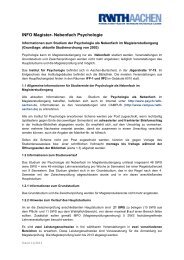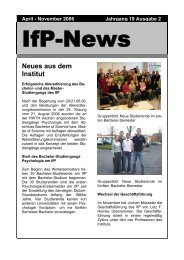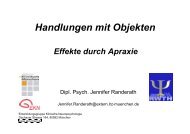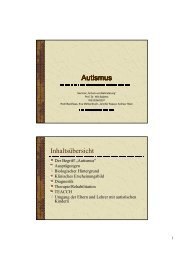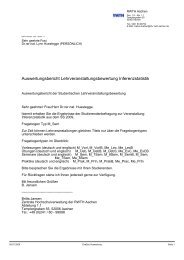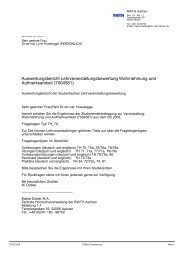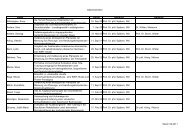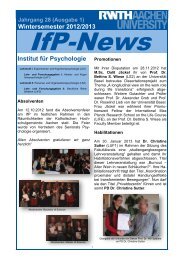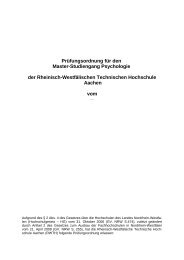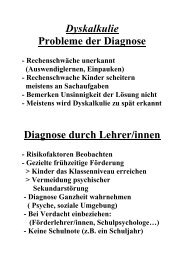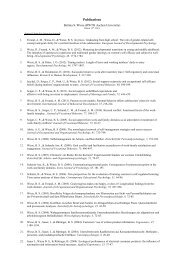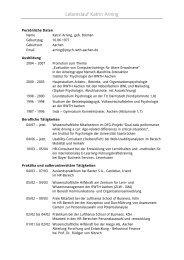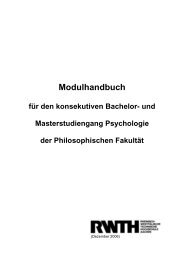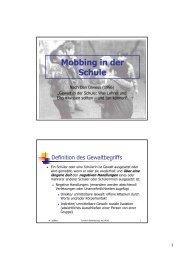Crossmodal Action 1 Crossmodal Action Selection - RWTH Aachen ...
Crossmodal Action 1 Crossmodal Action Selection - RWTH Aachen ...
Crossmodal Action 1 Crossmodal Action Selection - RWTH Aachen ...
You also want an ePaper? Increase the reach of your titles
YUMPU automatically turns print PDFs into web optimized ePapers that Google loves.
<strong>Crossmodal</strong> <strong>Action</strong> 2<br />
Abstract<br />
Response-related mechanisms of multitasking were studied by analyzing simultaneous<br />
processing of responses in different modalities (i.e., crossmodal action). Subjects responded to<br />
a single auditory stimulus either with a saccade, a manual response (single-task conditions), or<br />
both (dual-task condition). We used a spatially incompatible stimulus-response mapping for<br />
one task but not for the other. Critically, inverting these mappings varied temporal task<br />
overlap in dual-task conditions while keeping spatial incompatibility across responses<br />
constant. Unlike previous paradigms, temporal task overlap was manipulated without utilizing<br />
sequential stimulus presentation, which might induce strategic serial processing. The results<br />
revealed dual-task costs, but these were not affected by an increase of temporal task overlap.<br />
This finding is evidence for parallel response selection in multitasking. We propose that<br />
crossmodal action is processed by a central mapping-selection mechanism in working<br />
memory, and that the dual-task costs are mainly caused by mapping-related crosstalk.<br />
Keywords: Dual-Task Interference, Task Dominance, Stimulus-Response Compatibility,<br />
Saccades, Manual Responses, Crosstalk



